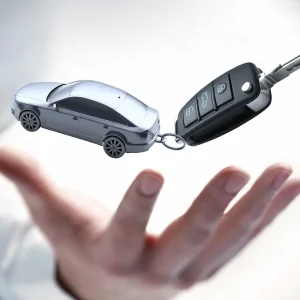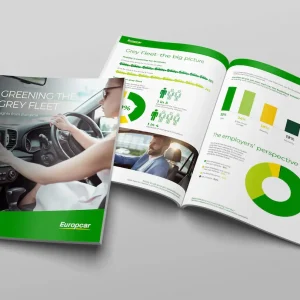When everyone worked from the same office, providing pool vehicles at a centralised place of work meant employees grabbed a car when they needed to go offsite and brought it back when they were done.
People without a company car avoided running up miles on their own vehicles, grey fleet usage was reduced, and employers didn’t have to reimburse mileage.
Changing working patterns and the growth of hybrid and remote roles mean this simple model no longer works.
The dramatic reduction in office occupancy post-Covid means the centralised pool car model cannot meet the increasingly complex mobility needs of employees. Some organisations that we work with report occupancy levels of only 25%, compared with 80% before the pandemic.
The office is no longer the default start point of a business journey for people now working from a variety of locations, which is a key reason why pool cars alone are no longer the right solution.
Alternative modes of transport close to employee’s homes, or wherever they are staying, can provide a more sophisticated, blended mobility offering that delivers a better fit to employee needs.
Even for roles that remain primarily office-based, the potential value that pool cars could deliver is often not achieved because their usage is not closely managed or monitored. Nor are employees encouraged to use the vehicles as an alternative to grey fleet.
The result is these workers simply use their own vehicle and reclaim the miles, resulting in increased usage of grey fleet and associated emissions, plus additional costs to their employer.
If mileage expenses claims are analysed separately from pool car usage, and not aggregated to create a picture of the overall cost to the organisation, it’s more difficult to develop a holistic sense of the functions that grey fleet and pool cars are performing.
It can also be hard to track how under-utilised standard pool cars have become without the technology to provide usage metrics.
This usage data means businesses rapidly begin to understand precisely where vehicles are most needed and can adjust the fleet to suit.
Better data and more efficient vehicle usage drives down the use of grey fleet and mileage reimbursement claims by providing a more effective mobility solution for employees.
It’s hard to find a business where traditional pool cars are as efficient as a properly-managed blend of onsite car clubs, public transport, micro mobility, on-street car club, car rental, and indeed, walking or cycling.
Organisations that are rethinking the pool car are finding they can be aspirational in terms of how a revised approach can lower carbon emissions. This more flexible model, based on a mix of different types of transport, can also enable employees to trial EVs.
It can also help reduce overall mileage, perhaps because increased engagement with travel policy means people are more focused on thoughtful travel choices.
Rethinking the pool car is a three in one opportunity to improve employee mobility, reduce costs and lower business emissions, and deliver a more relevant service to hybrid workers.
Paul McCorkell is director of business rental UK & Ireland for Enterprise





